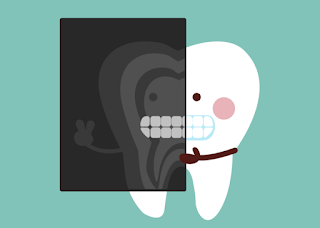" Root Canal Treatment"
“Preserve your natural
teeth…...Root canals are really not as terrifying as you may have heard…..”
If you were
recently informed that you need a root canal, chances are the minute you left
your dental office, you immediately began scouring the internet for information
on this well known – but highly misunderstood – dental service. The internet
can be a great place to gather helpful information, but it is also plagued by
unreliable sources and dangerously inaccurate information.
The
following are the common myths and misinformation about root canals and tooth
pain that are prevalent online. While finding out you are in need of a root
canal can be frightening, the more you know about this tooth saving procedure
and what it can do for your tooth ache and oral health, the calmer and more
confident you will feel when you return to the dentist’s chair.
-
You
only need a root canal if you are experiencing tooth pain
-
Root
canal treatment is painful
-
Root
canals cause illness
-
The
benefits of root canal therapy are temporary
-
Tooth
extraction (pulling the tooth) is a good
alternative to root canals
1. What is a root canal?
The central chamber of a
tooth contains the living vital tissues comprising the pulp including its
nerves and blood vessels. The interior of the tooth’s roots containing the pulp
make up its root canals.
2. How do I know if a tooth
has a root canal infection?
Symptoms of root canal
infection may include sharp, intense pain when you bite down, a dull ache or
pressure, or tenderness and swelling in gums near an infected tooth. There may
be a lingering pain after eating cold or hot foods. However, sometimes an
infected tooth may stop hurting and you no longer feel pain. This doesn’t mean
the infection has gone, only that the nerve may have died. Make an appointment
if you suspect that you have any or some of these symptoms.
3. Why would a tooth need root
canal treatment?
If the tissues in the
root canals become infected or inflamed because of deep cavity or trauma to a
tooth, root canal treatment is needed to treat the infection and save the
tooth. If left untreated, root canal infection can spread into the bone
immediately around the root.
4. I’m worried about X -rays,
should I be?
No. While X -rays will be
necessary during your root canal treatment, we use an advanced non- firm
computerized system called digital radiography that produces radiation levels
up to 90% lower than those of already low dose conventional dental X- ray machinery.
5. What takes place in a root
canal procedure?
After a local anesthetic is
administered to numb the tooth and surrounding area, a small opening is made in
the biting surface of the tooth. Dead and or dying tissue is removed from the
pulp chamber and the root canals are cleaned, disinfected and sealed to prevent
future infection.
6. What can I expect
afterwards?
Your tooth may feel tender
or sensitive for a few days. You can take over- the- counter non -steroidal
anti -inflammatory medication, Aspirin or Ibuprofen, for example, to relieve
pain or discomfort. Contact us if you have pain that lasts more than a few
days. A crown is usually needed to protect the tooth following root canal
treatment. Further, arrangements need to be made for the stage of the
procedure. Don’t chew on the affected tooth until symptoms subside and the
tooth has been restored as necessary.
7. Would extraction be a better alternative?
Saving your natural
teeth, if possible, is the very best option. Nothing can completely replace
your natural tooth. An artificial tooth can sometimes cause you to avoid
certain foods, keeping your own teeth is important so that you can continue to
enjoy the wide variety of foods necessary to maintain the proper nutrient
balance in your diet. If your dentist recommends extraction, ask whether root
canal treatment is an option.
Root canal treatment along with appropriate
restoration is a cost effective way to treat teeth with a damaged pulp and is
usually less expensive than extraction and placement of a bridge or an implant.
Root canal treatment also has a very high success rate. Many root canal treated
teeth last a lifetime. Placement of a bridge or an implant will require
significantly more time in treatment and may result in further procedures to
adjacent teeth and supporting tissues.
Dr. Krinita Motwani
Contact - + 91 9820280343, +91 9819002288
Khar West - Mumbai, India
Email - drkrinitamotwani@gmail.com




Comments
Post a Comment